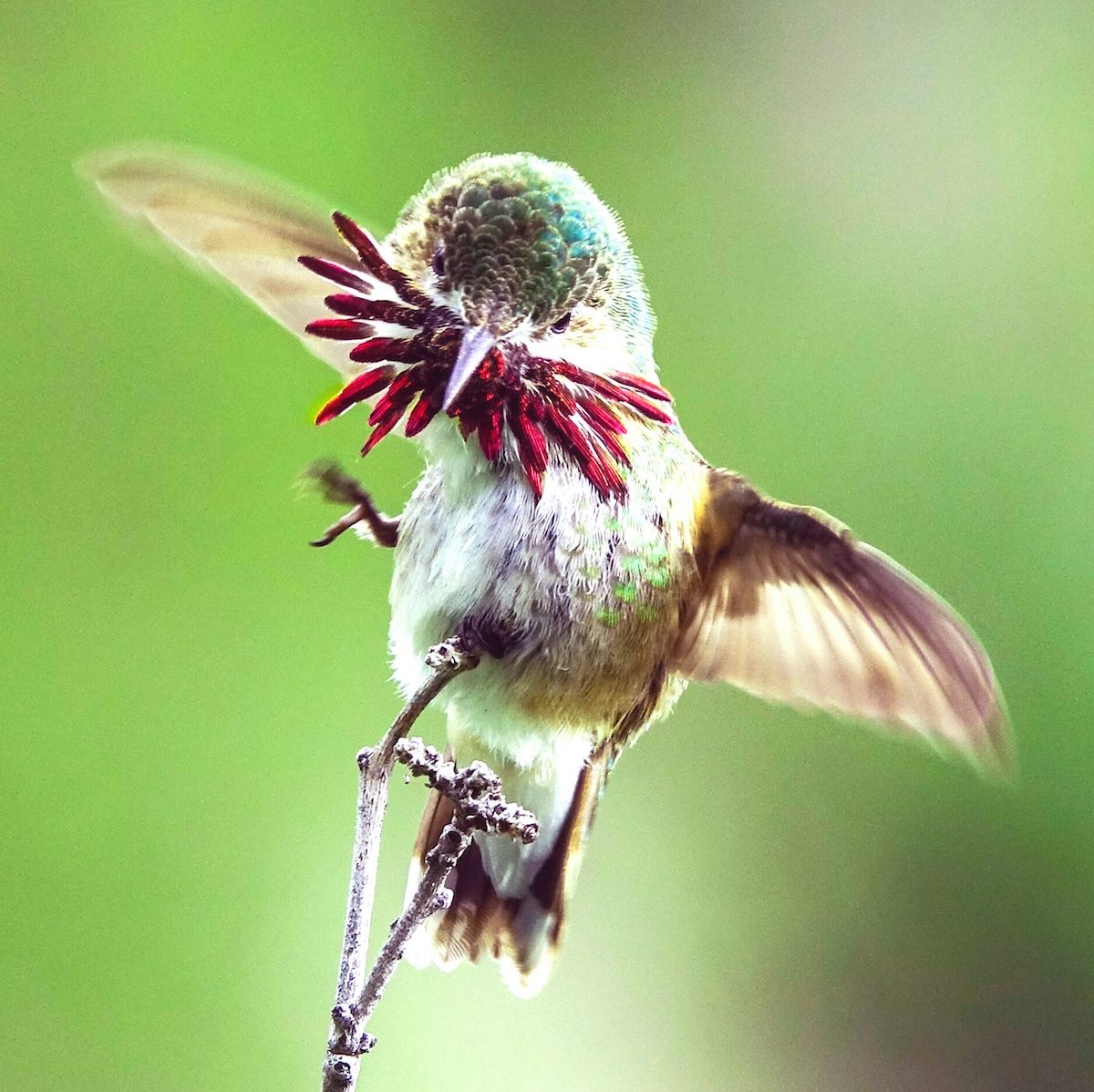Get ready to be surprised! From details about migration to who wins at backyard feeders, these bird facts are sure to blow your mind.

15 Bizarre and Surprising Bird Facts You Should Know


Black Skimmers Have Specialized Eyes
Black skimmers have an eye for detail: Their remarkable vertical pupils diminish the glare off the water (and sand) as they skim for fish.
Learn even more bird facts about black skimmers, including what makes their beaks unique.

Harris’s Hawks Have an Unusual Nickname
Why are Harris’s hawks called wolves of the sky? They hunt in pairs or packs, teaming up to spot and run down prey in the wide-open desert.
Learn all about the foods that hawks eat.

Calliope Hummingbirds Are Featherweights
At 1/10 ounce, Calliope hummingbirds are the lightest birds in the United States—but also among the most fearless. They’ll chase off larger hummingbird species and even hawks.
Get even more bird facts about Calliope hummingbirds, including where you can find them and how you can bring them to your yard.

Pied-Billed Grebes Activate ‘Submarine Mode’
When enemies approach, pied-billed grebes switch to submarine mode by compressing their feathers to decrease their buoyancy and sink below the water’s surface.
That’s not a duck! Meet more water birds you should know.

Burrowing Owls Found a Stinky Solution
Burrowing owls have many cute quirks, but this one kind of stinks: They decorate their front doors with bison and cow poop to attract yummy dung beetles.
Learn even more fascinating bird facts about burrowing owls, including whether they mate for life and if they’re active during the day.

Forms of Communication
Birds have their own form of baby talk. For example, female Gambel’s quails peep back and forth with their eggs to help the whole brood synchronize its hatch.
Get to know quails with these bird facts about them, including how long they live, how long ago the first quail fossil was found, and more.

Downy Woodpeckers Have Been Used in Research
Downy woodpeckers absorb loads of head trauma from hammering, so scientists have been studying their brains to learn more about degenerative diseases such as chronic traumatic encephalopathy and Alzheimer’s.
Which woodpecker did you see? Was that bird a downy woodpecker, or was it a hairy?

The Mystery of the First Bird Migration
Birds have been migrating for hundreds of thousands of years, but did they head north or south first? According to evolutionary scientists, they probably flew from colder regions down to the tropics, then made the return trip when the world around them warmed. This would explain why the majority of modern bird species in North America migrate every spring and fall.
Not all birds migrate by flying. Learn about the fascinating ways that some birds migrate — including walking and swimming.

Common Ravens Flock Together
Common ravens sharpen their social skills from an early age. Juveniles wander around in cliques until they develop deeper bonds with roost mates and paramours.
Just how intelligent are corvids? Discover the surprising brilliance of ravens, crows, and jays.

A Desert Bird’s Appetite Might Surprise You
Phainopeplas may belong to a group called silky-flycatchers, but their desert digs are full of berries, which they scarf down at a competitive eater’s pace (up to 1,100 in a day).
Learn more about the flycatcher birds.

These Birds Are Very Vocal
Male American bitterns gulp air to inflate their throats to make funky booming sounds that can be heard from more than half a mile away.
Get even more bird facts about the most musical songbirds in America.

Bird Facts: Are There Parrots in America?
Native to South America and popular as pets, monk parakeets that escaped from their cages have survived and thrived in parts of the United States, forming large wild colonies around many cities.
Get even more information about wild parrots in America, including where you can find them.

Who Rules Backyard Feeders?
Feeder birds have a social hierarchy built on bulk, loudness and territoriality. Jays and woodpeckers rule the seed, while goldfinches and titmice often get relegated to crumbs.
If you’re having trouble with bully birds such as grackles or blackbirds at your feeders, try these solutions.

Powerful Females
Female great horned owls, peregrine falcons and other raptors outsize their male counterparts. In fact, the male falcon is often called a tiercel, reflecting that it’s about a third smaller than its mate.
Take our quiz to see how many female birds you can ID.

Marvelous Movement of Purple Martins
At the tail end of summer, hundreds of thousands of purple martins rendezvous along the Gulf Coast, forming one of the grandest migration spectacles in the United States.
Sources
- Cornell Lab of Ornithology, “Burrowing Owl: Overview“
- Cornell Lab of Ornithology, “Gambel’s Quail: Overview“
- Cornell Lab of Ornithology, “Pied-Billed Grebe: Overview“
- Cornell Lab of Ornithology, “Common Raven: Overview“
- Cornell Lab of Ornithology, “Phainopepla: Overview“
- Purple Martin Conservation Association, “Migration Routes“
- National Park Service, “Black Skimmers“
- Cornell Lab of Ornithology, “Calliope Hummingbird: Overview“
- Audubon, “Better Know a Bird: How Harris’s Hawks Hunt Like Wolves to Bring Down Prey“
- Audubon, “Field Guide: American Bittern“
- Cornell Lab of Ornithology, “Monk Parakeet: Identification“
- Audubon, “Most Female Raptors Are Bigger and Stronger Than Males, but Why?“
- Cornell Lab of Ornithology, “The Basics of Bird Migration: How, Why, And Where“
- Cornell Lab of Ornithology, “When 136 Bird Species Show Up At A Feeder, Which One Wins?“






















